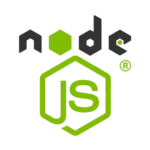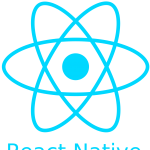Hire remote Ionic developers that you can trust
Hire Ionic developers from a unique network of 50,000+ pre-vetted offshore talents from Europe and Latin America, looking for a full-time contract. YouTeam developers stand apart for their ability to think like product managers and act like software architects. We also manage everything, so there’s zero overhead for your company.
Hire developers142 best Ionic developers for hire on YouTeam in February 2025

Yevhen
Senior Front-End Developer
Felipe
Front-End Developer
Julia
Angular Developer
Alexis
Software EngineerStart hiring to
see all talent
Hire
developers

Best Developer
Software EngineerTrusted by Fortune 500 companies and Y Combinator startups
Why hire Ionic developers with YouTeam
 48-hour personalized matching
YouTeam handpicks the best-matched candidates.
48-hour personalized matching
YouTeam handpicks the best-matched candidates.
 Zero overhead
Locally-compliant contracts and billing
Zero overhead
Locally-compliant contracts and billing
 Dedicated white-glove support
Dedicated white-glove support






How to hire Ionic developers with YouTeam
Share your requirements Set up a quick call with one of our Matching Experts — your dedicated contact at YouTeam.
Undergo Personalized Matching Your Matching Expert curates a candidate list, conducts pre-interviews, and ensures a perfect match for your needs—covering developers' skills, tech stack preferences, interests, and personality.
Meet the right candidates Review a list of candidates screened specifically for your request and pick the best for the interview stage. Average interview-to-hire ratio on YouTeam platforms: 1.75.
Hire and work with confidence YouTeam automates contract signing and invoicing through its secure system. Your dedicated Matching Expert stays with you throughout the collaboration with contractors.

Find developers skilled in related technology

Node.js
Hire Node.js developers
Flutter
Hire Flutter developers
React Native
Hire React Native developersAbout Ionic
- What is Ionic Framework?
- Key use cases for the Ionic Framework
- Ionic Framework tech stack: Key components
- What is the role of an Ionic Framework developer?
- Ionic developer experience levels
- Tasks and responsibilities of Ionic developers
- Skills to look for in an Ionic developer
- Types of Ionic developers: freelancers, in-house engineers, and outsourced programmers
- How to write the Ionic developer job description?
- Hiring Ionic developers: Hard skills assessment questions
The Ionic Framework is an open-source UI toolkit for building cross-platform mobile and web applications using web technologies like HTML, CSS, and JavaScript. It allows developers to create apps for iOS, Android, and the web from a single codebase, with a focus on performance and native-like user interfaces. Ionic integrates with popular JavaScript frameworks like Angular, React, and Vue, and includes Capacitor, a tool for accessing native device features.
These use cases highlight Ionic’s versatility in building mobile, web, and enterprise apps:
1. Cross-Platform Mobile Applications
Ionic’s primary use case is developing cross-platform mobile apps for iOS and Android. By using a single codebase, developers can deploy applications across multiple platforms, reducing development time and costs. This makes Ionic ideal for startups and businesses aiming to reach a broad audience without maintaining separate native apps.
2. Progressive Web Apps (PWAs)
Ionic is also a popular choice for creating Progressive Web Apps, which are web applications that offer mobile-like experiences. PWAs are lightweight, work offline, and load quickly, making them suitable for businesses focused on improving web user engagement while offering app-like functionality.
3. Enterprise Applications
Enterprises often use Ionic to develop internal apps for employees, such as communication tools, project management apps, and data dashboards. Ionic’s ability to integrate with existing systems and the scalability it offers make it a strong choice for corporate environments.
4. E-Commerce Platforms
E-commerce businesses use Ionic to create mobile apps that support their websites. The framework allows for fast development of secure, user-friendly shopping experiences across both Android and iOS devices, which is crucial for businesses seeking to grow their mobile customer base.
5. Educational and Healthcare Apps
The framework is also used to build educational and healthcare apps, where cross-platform functionality, smooth user interfaces, and rapid development are essential. Ionic supports real-time data features and easy access to native APIs, making it well-suited for apps requiring frequent updates and data security.
The Ionic Framework offers a tech stack designed to simplify the development of cross-platform mobile and web applications while also leveraging native device capabilities.
1. Ionic CLI
The Ionic Command Line Interface (CLI) is a powerful tool that helps developers streamline essential tasks such as creating, building, testing, and deploying Ionic applications, simplifying project management.
2. Angular (or React/Vue)
While Ionic originally focused on Angular, it now supports multiple front-end frameworks, including React and Vue. This flexibility allows developers to work with their preferred framework to create highly dynamic, responsive user interfaces.
3. Capacitor
Capacitor is a modern native runtime that enables Ionic apps to access native device features like the camera, GPS, and file system, allowing developers to build apps that perform seamlessly across iOS, Android, and web platforms.
4. Ionic Components
A library of pre-designed UI components such as buttons, navigation bars, and modals, Ionic’s UI toolkit provides a consistent and polished look across different devices and operating systems.
5. Cordova
For developers working with older Ionic projects, Cordova serves as a plugin-based platform that allows web apps to access native mobile functionality, though Capacitor has largely superseded it in newer projects.
6. Ionic Native
Ionic Native is a set of TypeScript wrappers for Cordova/Capacitor plugins that provides easier integration of native functionality like push notifications and geolocation in an Ionic app.
An Ionic Framework developer is responsible for designing and building cross-platform mobile applications using web technologies like HTML, CSS, and JavaScript, along with frameworks such as Angular, React, or Vue. Their role involves utilizing the Ionic framework’s UI components and tools like Capacitor or Cordova to ensure seamless performance across iOS, Android, and web platforms. They also integrate native device features such as GPS, camera, and file systems, and focus on optimizing the app’s performance and user experience while ensuring consistent design across different devices and operating systems.
Ionic developers can be categorized into three main experience levels: junior, mid-level, and senior, based on their years of experience and skill set.
Junior Ionic Developers
Experience: 0 to 2 years
Skills: Junior developers have foundational knowledge of web technologies like HTML, CSS, and JavaScript, and are familiar with the Ionic framework and tools like Capacitor. They may also have experience working with a frontend framework like Angular or React.
Role: These developers work under guidance, handling simpler tasks such as building basic features, UI components, and fixing minor bugs.
Mid-Level Ionic Developers
Experience: 3 to 5 years
Skills: Mid-level developers have a deeper understanding of Ionic and mobile app development. They are proficient in multiple frontend frameworks (e.g., Angular, Vue, or React) and are capable of handling app optimizations, debugging, and integrating APIs and native device features.
Role: They work more independently, taking ownership of significant parts of the project and collaborating effectively with other team members to implement complex features and ensure the app runs smoothly across platforms.
Senior Ionic Developers
Experience: 5+ years
Skills: Senior developers possess extensive experience in developing cross-platform apps with Ionic, as well as advanced proficiency in web and mobile technologies. They are skilled in optimizing app performance, managing app architectures, and implementing complex native integrations.
Role: Senior developers often lead teams, oversee the development process from conception to deployment, and mentor junior developers. They are responsible for creating high-performance, scalable apps and ensuring project success through technical leadership.
Tasks and responsibilities of Ionic developers include:
1. Developing Cross-Platform Apps: Using Ionic’s framework, Ionic developers create mobile applications that work seamlessly across iOS, Android, and web platforms.
2. Integration of APIs and Plugins: They are responsible for integrating APIs, backend services, and native device functionalities through tools like Capacitor or Cordova.
3. Optimizing App Performance: Ionic developers focus on improving app performance by optimizing code, ensuring fast load times, and providing smooth user experiences across devices.
4. UI/UX Implementation: They design and implement responsive user interfaces, ensuring that the app looks and functions well across various screen sizes and resolutions.
5. Debugging and Troubleshooting: Ionic developers test and fix bugs, ensuring the stability and functionality of the app across platforms.
6. Collaboration with Teams: They work closely with other developers, designers, and project managers to ensure the app’s development aligns with the project goals.
A proficient Ionic developer should not only be adept at using the framework but also possess a comprehensive understanding of web technologies and mobile app development:
1. Proficiency in Ionic Framework: The developer should have extensive experience with Ionic’s components, architecture, and tools like Capacitor or Cordova for building cross-platform apps.
2. Strong Knowledge of Web Technologies: Ionic relies on HTML, CSS, and JavaScript/TypeScript, so a solid grasp of these web technologies is crucial. Familiarity with frameworks like Angular or React is also beneficial.
3. Mobile App Development Experience: Look for developers who have hands-on experience in building and deploying mobile applications for both iOS and Android.
4. API Integration Skills: The developer should be able to seamlessly integrate third-party APIs and backend services, and have knowledge of RESTful APIs.
5. UI/UX Design Understanding: A good Ionic developer should be skilled in designing responsive and intuitive user interfaces that work well across multiple devices and screen sizes.
6. Problem-Solving Abilities: Ionic developers need strong problem-solving skills to debug and troubleshoot performance issues or compatibility problems across different platforms.
7. Version Control Proficiency: Knowledge of tools like Git for code versioning and collaboration is crucial for managing project updates efficiently.
8. Communication and Teamwork: As Ionic developers often collaborate with other team members, strong communication skills and the ability to work in a team environment are key to a successful project.
When looking to hire Ionic developers, you generally have three main options: freelancers, in-house engineers, and outsourced programmers.
Freelance Ionic Developers
You can hire freelance Ionic developers on various freelance platforms. These developers typically take on short-term projects and are not tied to any company, making them a suitable choice for organizations with limited budgets or specific project requirements. Freelancers are ideal for tasks that do not require extensive technical expertise or long-term commitments. However, finding a skilled Ionic developer who meets all your needs can be challenging, as many experienced developers prefer working with established companies on more engaging projects. Freelancers may also have less experience with complex problems that require in-depth knowledge of the framework.
In-House Ionic Engineers
For companies focused on core software development or needing dedicated support for their projects, hiring in-house Ionic engineers is often the best option. In-house developers typically deliver higher quality work due to their investment in the company’s success and their familiarity with its goals and culture. They contribute significantly to the ideation and optimization processes, which can enhance the overall performance and user experience of your applications. However, hiring in-house engineers can be costly, as it involves additional expenses like salaries, benefits, and providing necessary tools and resources for their work.
Outsourced Ionic Developers
Outsourcing provides access to Ionic developers through development agencies or specialized platforms. This option can effectively complement your existing team or serve as an independent unit, allowing for rapid scaling of your development efforts. Outsourcing is particularly beneficial for filling roles quickly, as agencies often have a pool of pre-screened candidates available for immediate engagement. If your project demands a level of technical expertise similar to that of your in-house team, outsourcing can be a cost-effective solution that maintains quality while allowing for flexibility in resource allocation.
By choosing the right type of Ionic developer, you can align your team structure with your project’s specific needs, budget constraints, and long-term objectives, ensuring a successful development process.
In a competitive market, a well-written description not only outlines the skills and qualifications required but also highlights your company’s unique culture and vision. This is your opportunity to convey what sets your organization apart and why a skilled Ionic developer would thrive in your environment. Here’s how to structure an effective job description that resonates with potential candidates and encourages them to apply.
1. Job Title and Overview
Start with a clear and concise job title, such as “Ionic Developer” or “Mobile Application Developer (Ionic).” Follow this with a brief overview of the company and its mission, highlighting how the Ionic developer will contribute to the team and the overall goals of the organization.
2. Key Responsibilities
List the main responsibilities of the role. This may include:
- Developing and maintaining cross-platform mobile applications using the Ionic framework.
- Collaborating with UI/UX designers to implement user-friendly interfaces.
- Integrating APIs and third-party services to enhance application functionality.
- Conducting thorough testing and debugging of applications to ensure high performance and reliability.
- Staying up-to-date with the latest trends and technologies in mobile development.
3. Required Skills and Qualifications
Specify the technical skills and qualifications necessary for the position. This could include:
- Proficiency in Ionic framework, Angular, and JavaScript/TypeScript.
- Experience with front-end technologies such as HTML, CSS, and SASS.
- Familiarity with RESTful APIs and cloud services (e.g., Firebase, AWS).
- Knowledge of version control systems like Git.
- Strong problem-solving abilities and attention to detail.
4. Preferred Qualifications
Include any additional qualifications that would be a plus but are not strictly necessary, such as:
- Experience with other mobile frameworks (e.g., React Native, Flutter).
- Knowledge of mobile app deployment processes for iOS and Android.
- Familiarity with agile development methodologies.
5. Work Environment and Benefits
Briefly describe the work environment (remote, hybrid, in-office) and any benefits offered, such as flexible working hours, professional development opportunities, and health insurance.
6. Application Process
Provide clear instructions on how to apply, including what materials candidates should submit (resume, portfolio, cover letter) and any relevant deadlines.
Here are some advanced assessment questions tailored for Ionic developers:
1. Can you explain the architecture of an Ionic application?
Expected Response: The candidate should describe how Ionic applications are built using Angular or React and how they utilize components, services, and modules to create a cohesive app structure.
2. What are the differences between Ionic 4 and previous versions, and how do these changes impact development?
Expected Response: Candidates should discuss improvements in performance, the introduction of the Capacitor for native functionality, and the shift towards more web standards, highlighting the benefits for developers and end-users.
3. How do you manage state in an Ionic application, and which state management libraries have you used?
Expected Response: The candidate should mention libraries such as NgRx or Redux and explain how they implement state management to handle data flow efficiently in their applications.
4. Can you describe how you implement navigation in an Ionic app?
Expected Response: The ideal answer should cover the use of Ionic’s navigation stack, router configurations, and how to manage transitions between different views or components within the app.
5. What strategies do you use to optimize the performance of an Ionic application?
Expected Response: Candidates should highlight techniques such as lazy loading, minimizing bundle sizes, and optimizing images and resources to improve application speed and efficiency.
6. How do you handle platform-specific features in Ionic applications?
Expected Response: The candidate should discuss using Capacitor or Cordova to access native device features and how to conditionally implement functionality based on the platform.
7. Describe your experience with testing Ionic applications. What tools and frameworks do you prefer?
Expected Response: Candidates should mention tools like Jasmine, Karma, or Cypress for unit and end-to-end testing, emphasizing their approach to ensuring code quality and reliability.
8. How do you ensure that your Ionic applications are responsive and work seamlessly on different devices?
Expected Response: The candidate should explain their approach to utilizing CSS Flexbox, Grid, and Ionic’s built-in responsive utilities to create adaptive layouts for various screen sizes.
9. Can you provide an example of a complex problem you faced while developing an Ionic application and how you resolved it?
Expected Response: The candidate should share a specific challenge, detailing their thought process, the solution they implemented, and any lessons learned from the experience.
10. How do you keep up with the latest trends and updates in the Ionic framework and the broader mobile development ecosystem?
Expected Response: Candidates should mention following official Ionic documentation, participating in community forums, attending webinars, or contributing to open-source projects as ways they stay informed.
FAQ about Hiring Ionic developer
Why choose YouTeam to hire Ionic developers?
YouTeam offers access to a highly qualified pool of Ionic Framework developers, helping you scale your team quickly. Each developer is thoroughly vetted, ensuring their skills, experience, and reliability. With partnerships across 500+ development agencies and over 50,000 developers, you can receive qualified candidates within 48 hours, making it a fast and reliable solution for your hiring needs.
How does YouTeam vet Ionic developers?
YouTeam follows a multi-stage vetting process. First, developers are sourced from trusted development agencies, ensuring they meet the necessary skill and experience requirements. Pre-screened candidates are then forwarded to clients for further interviews, allowing them to select the best fit based on specific project needs.
How much does it cost to hire the best Ionic developers through YouTeam?
The cost of hiring Ionic developers on YouTeam varies based on factors like expertise, location, and skills. On average, an Ionic developer through YouTeam charges around $50 per hour, though rates can fluctuate depending on specific project requirements.
How quickly can you hire with YouTeam?
With YouTeam, you can hire developers faster than traditional methods. Here’s why:
1. Shortlist in 48 hours: Powered by our AI Matchmaker and human experts, we deliver a tailored shortlist of vetted candidates within just 48 hours.
2. Larger talent pool: As a marketplace, YouTeam offers access to a broader range of developers from hundreds of partner agencies, giving you more options than typical outsourcing agencies.
3. Seamless process: From the moment you request a call, our Matching Experts handle the rest, ensuring you quickly receive top-quality candidates who match your precise requirements.
With YouTeam, our clients have been able to build development teams within just a few weeks, not months.
What is the no-risk trial period for YouTeam developers?
1-Month Trial: You can terminate the engagement at any time during the first month.
Free Replacements: If you’d like to replace a contractor, we’ll do it within two weeks, free of charge.
You can learn more by reading our Money-Back Guarantee.
How is YouTeam different from freelance portals for hiring Ionic developers?
Unlike freelance platforms, YouTeam connects you with developers from trusted software development agencies, not freelancers. This ensures that developers have the necessary technical and soft skills, along with relevant experience. If a developer needs to be replaced unexpectedly, YouTeam can quickly provide a substitute of equal skill to avoid project delays.
How do Ionic developer salaries differ, and why?
Ionic developer salaries vary based on factors like geographic location, experience, and job market demand. In the United States, average salaries typically range from $80,000 to $120,000 annually, with senior developers in major tech hubs like San Francisco or New York earning upwards of $150,000. This reflects the high demand for developers skilled in creating efficient cross-platform applications.
In regions such as Eastern Europe and Latin America, Ionic developers generally earn between $30,000 and $60,000 per year. This difference is largely due to the lower cost of living and a growing supply of qualified professionals. Companies often hire from these areas to access skilled developers at competitive rates, demonstrating how local economic factors affect salary levels.
Reviews
“It's just much more convenient to find a small team. I talk to one person, get 5 hand-picked CVs, interview candidates, hire the best ones – and I’m done!”
“Every time YouTeam sends me a list of potential developers, I am confident that I can interview pretty much anybody and they will be a good candidate.”
“The decision to use YouTeam was made by comparing them directly to the other candidates. As soon as I started talking to them, YouTeam adopted a hands-on approach. Time-wise, YouTeam also performed well.”
“We will definitely continue with them in the future. I’m so happy with their work that I’ve recommended them to my other company as well. There were no issues, it was really good. I gave a very loose brief, and the developer who worked for me had enough initiative to tighten it up by asking relevant questions. There was no messing around—it was done really well, with good, clean code.”
“YouTeam was very quick and responsive. I was presented with great candidates in just days, which was fantastic for me because we were looking to move fast. They had experience working on similar projects to exactly what we needed.”
“We wanted to boost our capacity for a period of six to twelve months. I decided to get a shot with YouTeam is that in any other place I can't say that I'm looking for a team of 5 developers with the possibility to scale. Now I returned to them again - this time for the confidence. If somebody is on the YouTube platform, you know that they've met a certain threshold of customer satisfaction, they've got a history of successful work elsewhere.”







